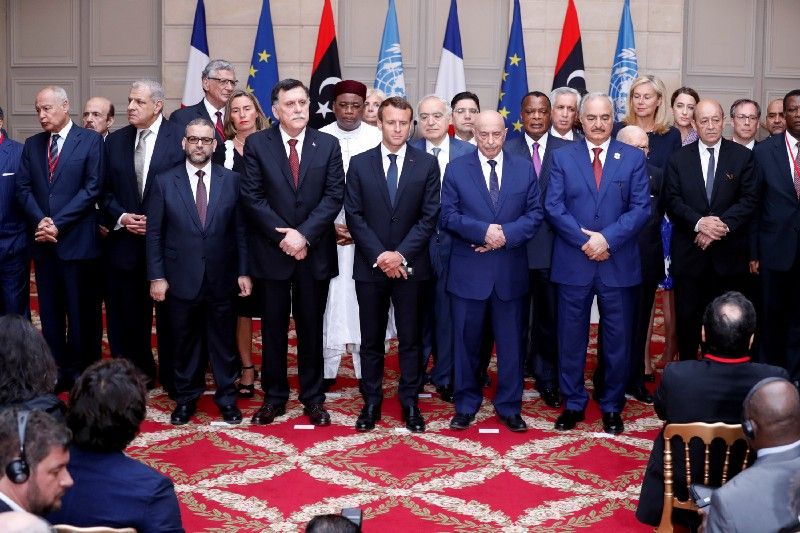May 30, 2018
You have probably heard why North Korean dictator Kim Jong-un is wary of the “Libya model” for disarmament — in short, Libyan dictator Muammar Gaddafi gave up his nukes, only to meet a gruesome end in a NATO-backed uprising several years later.
With the country’s various factions meeting in Paris yesterday (pictured above) to take their first, tentative steps towards national elections following a multi-year civil war — and Trump and Kim apparently working to reboot their June 12summit after it was derailed amid a spat over the US administration’s talk about a “Libya model” for North Korea — the consequences of Gaddafi’s removal outside of Libya also merit a closer look.
Here’s Alex with the breakdown:A leaderless Libya quickly became a haven for jihadists. By 2014, ISIS had taken root. The westward outflow of looted weapons and battle-hardened militants from Libya boosted jihadist groups like Boko Haram and Al-Qaeda in West Africa, while exacerbating regional conflicts over religion and land in Mali, Niger, and Nigeria.
In Europe, Libya’s lawlessness and proximity to Italy made it the primary departure point for migrants and refugees risking the perilous Mediterranean crossing. Although a maritime policing deal between Rome and Tripoli has slowed those flows in recent years, the political impact of the refugee crisis on Europe broadly — and on Italy specifically — has already reshaped the continent’s politics.
Despite the apparent progress in Paris, Libya is a reminder that regime change is the easy part. As Pyongyang and Washington work to resurrect their historic meeting, it’s not only Kim Jong-un who should be wary of an approach that leads to a Gaddafi-like denouement.
More For You
Most Popular
Fishing boats moored at Taganga Beach, as fishermen express concern over unclear US government videos showing strikes on vessels during anti-narcotics operations, amid fears that those targeted may have been fishermen rather than drug traffickers, in Santa Marta, Colombia, on October 20, 2025.
REUTERS/Tomas Diaz
Walmart’s $350 billion commitment to American manufacturing means two-thirds of the products we buy come straight from our backyard to yours. From New Jersey hot sauce to grills made in Tennessee, Walmart is stocking the shelves with products rooted in local communities. The impact? Over 750,000 American jobs - putting more people to work and keeping communities strong. Learn more here.
© 2025 GZERO Media. All Rights Reserved | A Eurasia Group media company.
